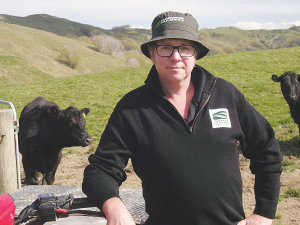State housing provider, Kāinga Ora’s decision to rule out the use of wool carpets in social housing has been described as a slap in the face by sheep farmers.
Currently, Kāinga Ora’s ‘Request for Proposals’ for the national supply of carpet and underlay specifies nylon carpet only, going so far as to specify that the department in charge of state housing would not be looking to procure wool carpets.
Federated Farmers meat & wool chair Toby Williams describes the decision as “disappointing and shortsighted”.
“Whatever happened to the Government commitment to back our farmers and use sustainable woollen products in Government buildings? That’s ringing pretty hollow today,” Williams says.
According to the National-NZ First coalition agreement, signed last year, government agencies were supposed to be directed to use woollen fibres where practical and appropriate over artificial fibres in government buildings.
This followed furore fuelled by a decision by the Ministry for Education in July 2023 to use synthetic carpets manufactured by a US company in small and remote schools.
Williams says he cannot fathom why Kāinga Ora would elect to use synthetic carpeting in state housing, adding that “we didn’t even get a look in”.
Read More
“Kāinga Ora weren’t interested in testing the price wool carpet providers might come up with a significant supply contract,” he says.
“Farmers just want a level playing field, but we were totally shut out of this process with no clear reason why,” he adds.
"Using cheap plastic carpets might save you a dollar or two in the current economic climate, but there are other costs that need to be considered," Williams says.
He says the decision comes at the expense of the viability of sheep farmers and rural communities, but also carries a significant environmental cost.
"For the Government to choose a fossil fuel-derived synthetic carpet over a sustainable New Zealand-grown woollen product, just because it’s cheaper, is an absolute shocker,” he says.
Meanwhile, Bremworth chief executive Greg Smith says that if Kāinga Ora were to have granted the contract to a wool carpet producer, it would have been ‘transformative’ for the sector.
“In July 2023, Kāinga Ora stated that it was pursuing a more sustainable path for its housing,” Smith says. “That meant looking at the fibre being used in their homes after over 600,000 meters of synthetic carpet had been laid over the previous six years.”
He says this volume of synthetic carpet requires the importing of approximately 1.7 million kilograms of plastic for its production.
“Ironically, many of the Kāinga Ora homes would date from a time when wool was the only option for carpet in New Zealand,” Smith says. “To suggest that for some reason decades later wool is no longer a viable option for the same purpose makes no sense.”
He says that, ultimately, this means Kāinga Ora has opted to specify a carpet made from imported fibre that is essentially plastics.
“Given we have a large surplus of high-performing alternative in locally grown strong wool, this decision seems to lack macroeconomic insight and an awareness of the plight of our rural sector and the communities they support in recent years,” Smith concludes.



















